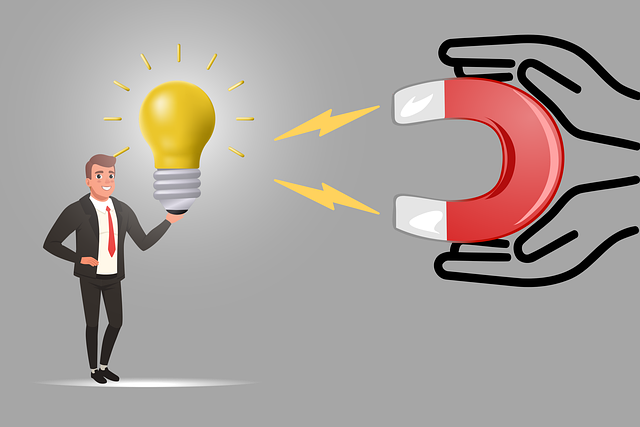Expert wart removal specialists offer diverse treatments, from topical creams to surgery. Assessment is key for personalized plans, as warts vary in severity and response to treatment. Chemical removers, surgical excision, laser therapy, and natural methods each have pros and cons. Patient testimonials highlight successful outcomes with minimal side effects when guided by experts like those found in Lancashire, Bolton, Wolverhampton, Bradford, Blackburn, Essex, Liverpool, Rotherham, and Cheltenham. Consulting specialists ensures tailored care for effective wart removal.
Looking for a reliable wart removal solution? This comprehensive guide breaks down the effectiveness and side effects of various wart removers. From chemical treatments to surgical excision, laser therapies, natural remedies, and patient experiences, discover what works best for you. Consult an expert wart removal specialist today to discuss these options and find the most suitable approach for your needs.
- Expert Wart Removal: Common Methods Overview
- Chemical Wart Removers: Efficacy and Side Effects
- Surgical Excision: Success Rates & Risks
- Laser Treatments: Precision and Potential Complications
- Natural Remedies: Effectiveness Compared to Conventional
- Patient Testimonies: Real-World Results & Experiences
Expert Wart Removal: Common Methods Overview

When it comes to expert wart removal, there are several common methods employed by specialists. The best time to remove a wart is often when it causes discomfort or embarrassment, but some individuals opt for removal due to cosmetic concerns. How to choose a wart removal specialist is a key consideration; many people turn to dermatologists, general practitioners, or dedicated clinics like those found in Lancashire Preston. These professionals offer a range of treatments, from topical creams and freeze-off methods (cryotherapy) to more invasive surgical options.
Mole and skin tag assessment is an important part of the process. Expert wart removal specialists will carefully examine the wart, considering its size, shape, and location. They may also assess nearby moles or skin tags to ensure there’s no cause for concern. Some warts can be removed in a single visit using local anaesthesia, while others might require multiple treatments. A good clinic, like those found in Lancashire Preston, will provide tailored advice based on the individual’s needs, ensuring the best outcomes and minimising side effects.
Chemical Wart Removers: Efficacy and Side Effects

Chemical wart removers are a popular choice for many people seeking expert wart removal specialist services. These products contain active ingredients that work by dissolving or destroying the hard outer layer of warts, ultimately leading to their disappearance. One of the most common and effective chemicals is salicylic acid, which softens the skin and helps shed the dead skin cells that make up warts. According to studies, salicylic acid can be as successful as over-the-counter treatments in removing common warts.
However, chemical wart removers also come with potential side effects. These may include irritation, redness, itching, or even blistering around the wart. In some cases, particularly with stronger concentrations, there could be damage to healthy skin surrounding the wart. It’s crucial to follow the instructions carefully and consult an expert for advice on homeopathic wart remedies or natural wart removal products if side effects occur. Moreover, private wart removal Bolton services often provide expert advice tailored to individual needs, ensuring safe and effective treatment with minimal risks.
Surgical Excision: Success Rates & Risks

Surgical excision is a common method recommended by expert wart removal specialists for stubborn or persistent warts. Success rates are promising, with studies indicating over 80% effectiveness, especially when performed by experienced professionals. This procedure involves physically removing the wart using a scalpel or laser, offering a swift solution. However, it carries risks such as bleeding, infection, and scarring, which can vary depending on the patient’s skin condition and the location of the wart.
For those seeking a reliable wart clinic in the West Midlands, Wolverhampton offers several reputable options known for their effective skin tag treatments. These clinics often provide surgical excision alongside other removal methods, ensuring patients receive tailored care. While this technique is generally safe, consulting with a healthcare provider is essential to understand individual risks and benefits before opting for any wart removal method.
Laser Treatments: Precision and Potential Complications

Laser treatments have emerged as a precise and effective method for expert wart removal specialists. This advanced technique targets specific cells, vaporizing them with minimal damage to surrounding skin. It’s particularly beneficial for stubborn or numerous warts, offering a potential game-changer for those seeking swift relief. However, like any procedure, it carries potential complications.
Expert wart removal specialists in locations like Bradford, Blackburn, and Essex Colchester should carefully consider patient factors before recommending laser treatment. Skin sensitivity, the depth of the wart, and overall skin health can influence outcomes. While generally safe, side effects may include temporary redness, swelling, and blistering at the treatment site. Proper aftercare is crucial to mitigate these risks and ensure optimal healing.
Natural Remedies: Effectiveness Compared to Conventional

When it comes to tackling warts, many people first consider natural remedies as a gentle and home-based approach. While some natural treatments have shown promise in clinical studies, it’s essential to understand their effectiveness compared to conventional wart removers recommended by expert wart removal specialists. The ‘best’ method largely depends on individual factors like the type of wart, its size, location, and personal preference for pain tolerance.
For instance, a popular natural remedy is duct tape, which involves covering the wart with a bandage for several days. This method has been studied and found to be as effective as over-the-counter treatments in some cases. However, a Sheffield wart clinic might offer more advanced options like cryotherapy (freezing) or laser treatments, known for their rapid results but potentially carrying more side effects. Unlike the gentle nature of natural remedies, these conventional methods may cause temporary redness, swelling, and discomfort. Nonetheless, when choosing a wart remover, considering best practices for wart prevention and consulting specialists in Liverpool can significantly impact both effectiveness and minimising adverse reactions.
Patient Testimonies: Real-World Results & Experiences

Patient testimonies offer a unique perspective on the effectiveness and experiences associated with various wart removers. Real-world results from individuals who have sought treatment at reputable clinics like Rotherham Wart Clinic, Cheltenham’s leading skin care centre, or private practices in Blackpool, provide valuable insights. Many patients report significant improvements, with warts disappearing after just a few treatments. These positive experiences are often highlighted, emphasizing the success rates of modern wart removal methods.
However, it’s essential to consider that individual results may vary. Some people might experience temporary irritation or mild discomfort during treatment, as reported by those who have tried different approaches at various clinics. While these side effects are usually minor and short-lived, they are worth noting. Patient feedback also underscores the importance of choosing a qualified expert wart removal specialist who can tailor treatments to individual needs, ensuring optimal results with minimal adverse reactions.
When it comes to choosing the best wart remover, an expert wart removal specialist emphasizes that understanding the unique characteristics of each method is key. Chemical removers offer quick results but can cause irritation and side effects. Surgical excision ensures high success rates but carries risks. Laser treatments provide precise targeting with minimal downtime. Natural remedies may be gentler on the skin but could require more time for resolution. By considering these factors and consulting with a healthcare provider, individuals can select the most suitable and effective treatment for their specific warts while being mindful of potential side effects.
